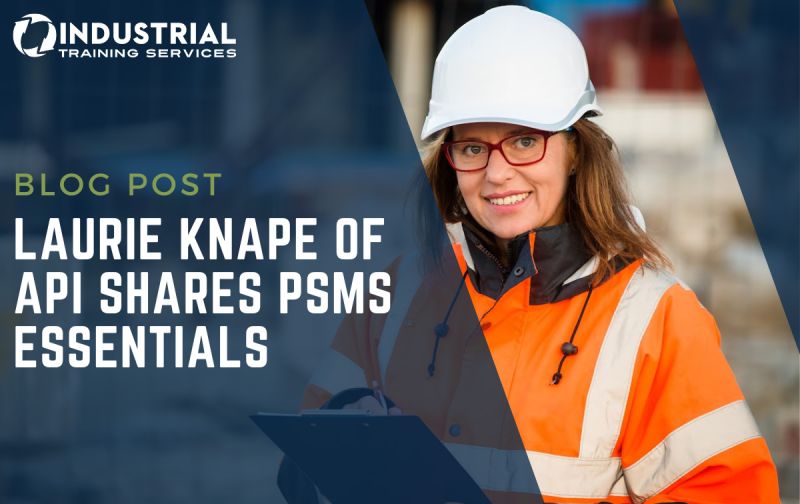 By: Ed Cyzewski
By: Ed Cyzewski
ITS is looking forward to hosting current (and future) clients at the
2024 User Conference in Nashville, TN on October 16-17. Laurie Knape,
Program Manager of Pipeline Safety Management Systems (PSMS) at API, is one of our featured panelists and breakout speakers who specializes in guiding operators through the adoption of a PSMS. Laurie kindly met with the ITS team ahead of the conference to share a preview of her presentations and discussions, which will be among several timely learning options offered at this year’s conference.
We’re excited to have you at the User Conference this October. From talking to you, I get the impression that you believe implementing a PSMS is both useful and achievable. What will your approach be for addressing PSMS?
I plan to share an overview of what PSMS is, the importance of implementing PSMS, and the history behind it. PHMSA asked the industry to develop PSMS, and in collaboration with industry, API has since created several tools to make it user-friendly. People don’t have to create a PSMS program from scratch because the requirement is to map their existing program to a PSMS.
As of right now there are no regulatory requirements for PSMS from PHMSA. Based on the latest report delivered to Congress, how do you see PSMS adoption evolving in the coming years?
We have heard statements such as “One more San Bruno or Merrimack Valley incident away from RP 1173 being incorporated by reference.” PHMSA’s report to Congress strongly encourages industry to recognize the value of PSMS and to voluntarily implement RP 1173 or other equivalent safety management systems supported by a strong safety culture to achieve PHMSA’s and industry’s goal of zero incidents.
Where should a company start with a PSMS plan if they haven’t yet?
The best place to start is to familiarize yourself with 1173, what is required, and the areas most critical to your operations, regardless of size. There are several free tools on the
PipelineSMS.org website that are a great starting point to help a company determine where they are.
One of the pushbacks we hear about PSMS is that it takes a lot of time and money. How do you respond to that?
PSMS is scalable and flexible based on the size of the company and their starting point. The free resources available will help reduce costs. With any project, the set-up is the most time-consuming.
The tools on the
PipelineSMS.org website are easy to use and have dropdowns to reduce the time needed to complete the evaluation.
What can small operators do with PSMS?
Small operators are required to follow the same regulations as large operators. The benefit of 1173 is its scalability and flexibility. Small operators can use the same tools and evaluate their status. API is always happy to have a conversation with anyone and help with the tools.
In your work as a program manager, what can we expect to see in the next edition to improve PSMS?
We have already seen a lot of improvements in the program since the pilots 6 years ago. When 1173 is reissued next year, API will have a review of our tools and other offerings to match them to the updates in 1173. I think the language in the re-write of 1173 will make things clearer and easier to interpret.
Would you like to share a preview for the breakout sessions on API Tools and PSMS for small operators and contractors?
There are several tools for contractor and municipality assessments and the field-level training of 1173 eLearning that we just completed that are really helpful. We offer user-friendly documents such as spreadsheets, forms, and drop-down charts.
Thank you, Laurie for your hard work at API and for preparing so many helpful presentations for our User Conference in October! We look forward to your sessions!
Learn more about the
2024 User Conference in Nashville, TN on October 16-17 and register for free while free registration is still available!
 By: Ed Cyzewski
By: Ed Cyzewski


 By: Ed Cyzewski
By: Ed Cyzewski
